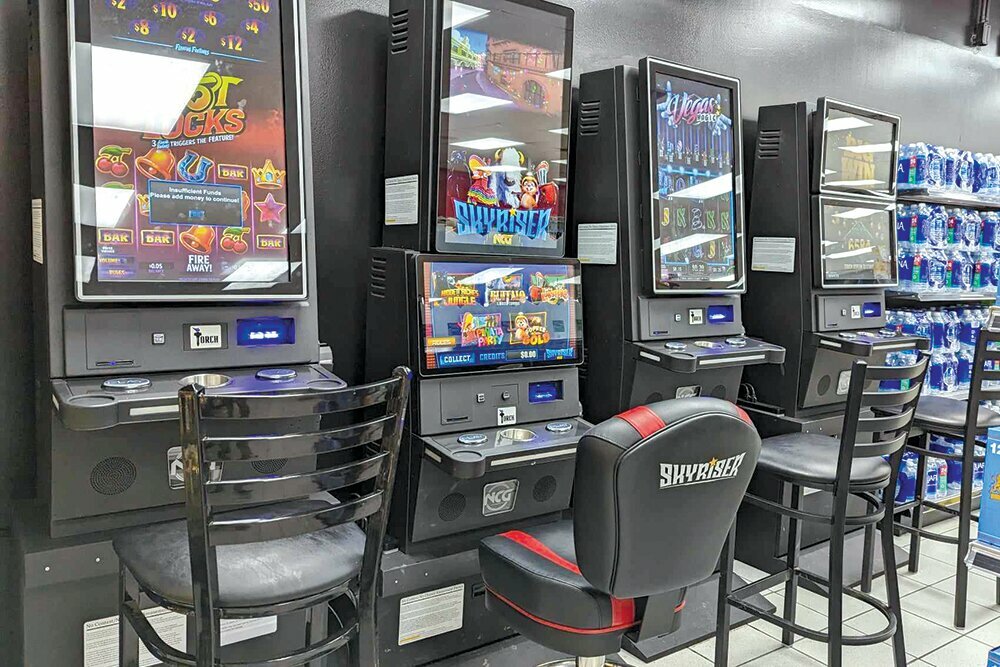
Editor’s note: This article by the Missouri Independent, written by Rudi Keller, has been published with permission from the publication. The original story is available on the Missouri Independent’s website.]
The courts cannot shield Missouri’s biggest vendor of games offering cash prizes from criminal prosecution for gambling violations, the Western District Court of Appeals ruled Tuesday.
In a unanimous decision, the court upheld last fall’s dismissal of a lawsuit filed by Torch Electronics that sought an order barring the Missouri State Highway Patrol from seizing machines and seeking criminal charges. The civil courts cannot be used to interfere with criminal proceedings, Judge Edward Ardini wrote for the three-judge panel that heard the case.
“It is evident from plaintiffs’ amended petition that their objective in bringing this lawsuit is to enjoin law enforcement from determining the devices are criminal and seizing them,” Ardini wrote. “We are not persuaded by plaintiffs’ attempts to characterize their claim as one seeking declaratory judgment interpreting a civil statute.”
In his October 2023 order, Cole County Circuit Judge Daniel Green also dismissed the claims of the Missouri Gaming Association, which intervened in the case by arguing Torch operations caused “a loss of business for association members (licensed, regulated casinos) and undermines the public policy of legal, regulated, licensed gaming.”
The opinion handed down Tuesday also upheld Green’s dismissal of the Gaming Association claims. Just as the civil courts cannot declare an activity to be protected from prosecution, Ardini wrote, the courts cannot declare that a particular activity is criminal.
“Missouri courts do not provide equitable relief that interferes with the enforcement of criminal law absent a challenge to the law’s constitutionality or validity,” Ardini wrote.
If the court had upheld either challenge to the dismissal, the result would have put the case back in Green’s hands for further proceedings. A final appeal to the Missouri Supreme Court is possible but attorneys for the losing parties said Tuesday they weren’t certain they would continue the case.
“We are reviewing the decision to determine our next steps,” said Chuck Hatfield, attorney for Torch.
Marc Ellinger, attorney for the Gaming Association, said his clients are also reviewing the opinion.
“We will make our decisions in due course,” Ellinger said.
The case decided Tuesday is the first appellate decision involving what vendors call “pre-reveal” or “no-chance” gaming machines that have proliferated in Missouri since 2018. There was one felony conviction involving non-Torch machines and several misdemeanor convictions but none have been appealed.
Torch filed the lawsuit in early 2021 against the patrol, the Department of Public Safety and the Division of Alcohol and Tobacco Control. In it, Torch accused the patrol of a campaign of “harassment and intimidation” targeting its games, which are offered to patrons of convenience stores, truck stops and other locations around the state.
Its games are not illegal, Torch argues, because a “pre-reveal” player can learn the outcome of the upcoming play before putting money at risk. That means they are not games of chance, the company argues.
Opponents argue that it is the unknown results of future plays that make the games illegal. That has led to them being called “gray market” machines because of the uncertainty.
At that time, Torch was facing felony prosecution in Linn County for promoting gambling, a case that has since been dismissed. The company also sued the Linn County prosecuting attorney.
A review by The Independent in 2021 showed the patrol had sent prosecutors 190 cases in 2019 and 2020 requesting charges for illegal gambling and that only a handful of cases were actually filed. Torch has cited that article repeatedly in its court filings to show that there is a consensus among prosecutors that its games are legal.
Torch is not currently a defendant in any criminal case.
Torch is challenging a new ordinance in Springfield outlawing games that offer cash prizes. Torch has sued the city, arguing that the new ordinance should not be applied to its games.
As of late April, Springfield had issued 36 citations to businesses with the machines that allegedly violate the ordinance, the Springfield News-Leader reported.
Legislative efforts to rewrite state gambling laws have been stymied by strong lobbying by Torch as well as disagreements over what kind of new gambling, if any, to allow in the state. Attempts to legalize sports wagering have failed, as has a push to allow video games operated by the Missouri Lottery.
Major league sports teams banded together with online gambling companies for an initiative petition drive that could put sports betting on the ballot later this year. Casino gambling, the state lottery, and parimutuel wagering on horse races are currently legal, along with raffles and bingo for nonprofit organizations.
In Tuesday’s decision, Ardini wrote that it is bad policy for the civil courts to take on challenges to enforcement of criminal laws.
“There are sound policy reasons why courts should not be used to civilly enforce criminal laws, including the difference in the burden of proof between a criminal prosecution and an action for equitable relief,” Ardini wrote. “Further, courts should avoid encroaching on the constitutional and statutory duties of prosecutors to enforce the criminal laws by permitting private litigants to seek enforcement through a civil action for declaratory or injunctive relief.”